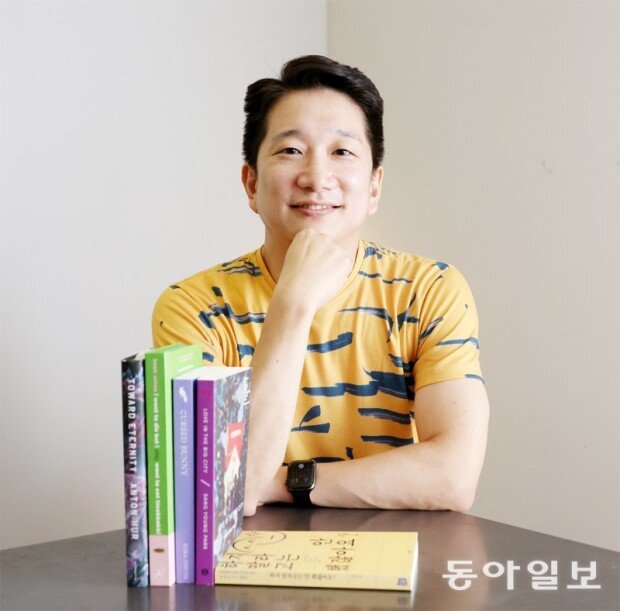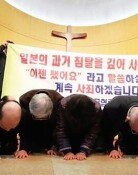Interview with S. Korea’s first Booker Prize judge Anton Hur
Interview with S. Korea’s first Booker Prize judge Anton Hur
Posted July. 31, 2024 07:53,
Updated July. 31, 2024 07:53

Anton Hur, a highly regarded translator recently named to the International Booker Prize jury, wore a serious expression on his face. At 43, Hur is the first Korean to serve as an International Booker Prize judge. He gained recognition for his translation work on Chung Bo-ra’s Cursed Bunny and Park Sang-young’s Love in the Big City, which were nominated for the prize in 2022. Having lived abroad, including in the United States, for nine years during his youth with his father, Hur developed a strong familiarity with English. On July 26, he spoke about the Booker Prize judging process and the competitiveness of Korean literature.
The International Booker Prize ceremony will take place on May 20, 2025, in London. Prior to the ceremony, the longlist of 12-13 books will be announced on February 25, 2025, followed by the shortlist of six books on April 8, 2025. Nominations for the prize began on July 10, 2024. The prize honors works translated into English and published in the UK and Ireland, regardless of the author’s nationality.
The judging panel, which includes Hur, is composed of five members from diverse backgrounds such as novelists, poets, editors, and even a composer and singer. The panel reads and discusses 20-30 books monthly, eventually reaching a consensus on the nominees. The previous panel reviewed 149 books, a number that has been increasing each year. Hur, who previously served on the judging panel for the American Translators Association in 2021, read 250 submissions. Despite his passion for literature, it certainly takes extensive time and effort to fulfill the role. When asked about compensation, Hur described it as “adequate.”
Hur attributes the rise of Korean literature in the international arena to a shift in translation styles. The success of Deborah Smith's translation of Han Kang's The Vegetarian marked a significant turn towards interpretive translation, making Korean works more accessible to English-speaking readers. Previously, translations were often rigid and overly literal, which led to Korean literature being overlooked in English-speaking markets.
To further elevate Korean literature abroad, Hur emphasizes the need for expanded support for translation. Currently, only 10-20 Korean works are translated into English each year. He stressed the role of translators in making their works stand out and successfully market Korean literature internationally.
김소민 기자 somin@donga.com







